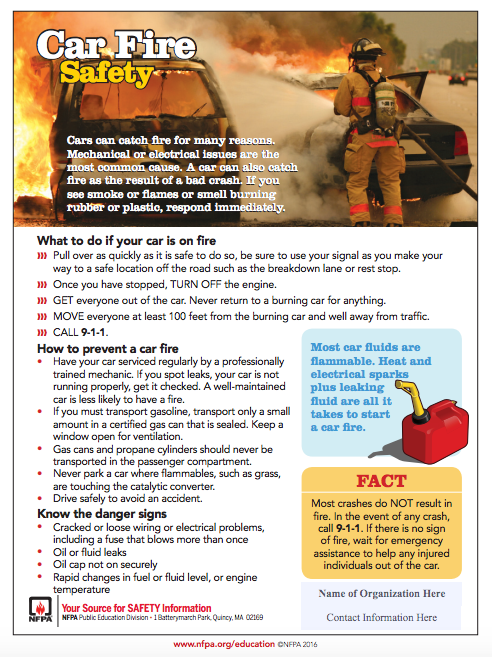Engine oil can cause fire if it comes in contact with a hot surface due to its flammable properties. This can occur if the oil leaks onto a part of the engine that is overheated during operation, leading to ignition and potentially a fire.
Can engine oil cause fire? This is a common question of engine industry. Understanding the risks associated with engine oil and taking preventive measures is crucial to avoid such dangerous situations. Proper maintenance, regular inspection, and immediate action in case of any oil leaks or spills are essential to prevent the risk of fire.
By staying vigilant and proactive, you can help ensure the safety of your vehicle and those around you. Always prioritize safety when it comes to engine maintenance and handling of flammable substances like engine oil.

Credit: footework.com
The Role Of Engine Oil
Engine oil plays a crucial role in the proper functioning of an engine. It serves various essential functions, including lubrication, cooling, and protection against wear and corrosion. Understanding the significance of engine oil in these aspects is vital to maintain the longevity and efficiency of an engine.
Lubrication And Cooling
- Lubricates the moving parts within the engine
- Reduces friction and wear between components
- Ensures smooth and efficient operation
- Transfers heat away from engine components
- Prevents overheating and potential damage
- Maintains optimum operating temperature
Protection Against Wear And Corrosion
- Forms a protective layer on metal surfaces
- Reduces friction and wear during engine operation
- Extends the lifespan of engine parts
- Prevents rust and corrosion on metal surfaces
- Maintains the integrity of engine components
- Enhances the durability of the engine
Understanding Engine Oil Flammability
Flash Point And Fire Point
Flash point indicates the lowest temperature where oil produces enough vapor to ignite.
Volatility And Vaporization
Volatility in oil signifies how easily it evaporates, contributing to flammability risks.
Potential Causes Of Engine Oil Fires
Understanding the potential causes of engine oil fires is crucial for vehicle safety. Here, we’ll explore two main factors that can lead to such incidents.
Fuel Or Oil Leaks
Fuel or oil leaks from the engine can create a highly flammable environment.
Hot Surfaces Or Sparks
Hot surfaces or sparks in the engine compartment can ignite leaked oil, causing a fire.
Examples Of Engine Oil Fires
Engine oil fires can be caused by various factors, and it’s important to be aware of the potential risks. Understanding the examples of engine oil fires can help in taking preventive measures to ensure safety.
Engine Compartment Fires
Engine compartment fires can occur due to oil leaks, overheated engines, or faulty electrical wiring. The combination of oil, heat, and ignition sources can lead to a fire. It is essential to regularly check for oil leaks and ensure the engine is properly maintained to prevent such fires.
Oil Spill Fires
Oil spill fires often happen when oil is accidentally spilled onto hot engine components or exhaust systems during maintenance. The spilt oil can ignite when it comes into contact with high temperatures, leading to a fire.
Proper procedures and caution should be exercised when handling engine oil to minimize the risk of spills and subsequent fires.
Preventing Engine Oil Fires
Engine oil is an essential component of every vehicle, ensuring smooth operation and minimizing friction between moving parts. However, improper handling and maintenance of engine oil can lead to a dangerous situation: engine oil fires.
To prevent such potentially catastrophic events, it is crucial to follow proper preventive measures. Here are two essential steps you can take: regular maintenance and inspections, and proper oil storage and handling.
Regular Maintenance And Inspections
Regular maintenance and inspections are key to preventing engine oil fires. By frequently examining your vehicle’s engine and oil system, you can identify potential issues or leaks before they escalate.
Inspecting components such as the oil filter, gaskets, and hoses can help verify their integrity and prevent oil leakage. Remember to check for any loose connections or damaged parts that may lead to oil leaks and potential fires.
Proper Oil Storage And Handling
In addition to regular maintenance and inspections, proper oil storage and handling are paramount to preventing engine oil fires. When it comes to storing engine oil, always ensure it is held in a cool and dry place, away from any potential ignition sources.
Store oil containers upright to prevent any leakage or spills, as oil on hot surfaces can ignite and cause fires. When handling engine oil, be cautious and take the necessary safety measures. Using a funnel to pour oil into the engine can minimize spills and reduce the risk of oil contacting hot surfaces.
Always wear appropriate protective equipment, such as gloves and safety glasses, when working with engine oil to prevent any accidental contact or injuries.
Proper disposal of used engine oil is equally important in preventing fires. Never dispose of used oil by dumping it on the ground, down drains, or in regular garbage bins. Instead, collect and store the used oil in a clean, sealed container and take it to a designated collection site for proper disposal.
Remember, engine oil fires can have devastating consequences. By following these preventive measures—regular maintenance and inspections, as well as proper oil storage and handling—you can significantly reduce the risk of engine oil fires and protect your vehicle and yourself from potential harm.
What To Do In Case Of An Engine Oil Fire
Engine oil is a crucial component in maintaining the performance and longevity of our vehicles. However, in rare occurrences, engine oil leaks or spills can lead to a potentially dangerous situation – an engine oil fire.
While these incidents are not common, it is important to know how to respond if such a situation arises. Immediate action is crucial in containing the fire and ensuring the safety of everyone involved.
Emergency Response Procedures
If you find yourself faced with an engine oil fire, here are some emergency response procedures you should follow:
- Immediately turn off the ignition and remove the key from the vehicle to prevent fuel or electrical systems from contributing to the fire.
- If it is safe to do so, assess the situation and determine if you can safely extinguish the fire using an appropriate fire extinguisher.
- If the fire is too large or uncontrollable, quickly move away from the vehicle and ensure everyone nearby does the same.
- Call emergency services right away and provide them with clear information about the location and nature of the fire. Do not attempt to handle the situation on your own without professional assistance.
Fire Suppression And Safety Measures
When it comes to fire suppression and safety measures, it is important to prioritize your well-being above all else. Here are some guidelines to follow:
- If you are trained to handle fires and have access to fire extinguishing equipment, use the appropriate type of extinguisher to suppress the fire. Remember to aim at the base of the flames and use sweeping motions to control the fire.
- Keep a safe distance from the vehicle to avoid potential explosions or flying debris caused by the intense heat. The recommended safe distance is at least 500 feet.
- Never attempt to open the hood or any other compartments of the vehicle during an engine oil fire. Opening these areas can provide more oxygen to the fire and exacerbate the situation.
- Inform nearby individuals about the fire and instruct them to stay away from the immediate area until emergency services arrive.
Remember, in the event of an engine oil fire, your safety should always take precedence. It is crucial to remain calm, follow proper emergency response procedures, and seek professional assistance as soon as possible.
FAQs Of Can Engine Oil Cause Fire
Can Engine Oil Catch On Fire?
Yes, engine oil can catch fire due to its flammable properties when exposed to high temperatures or sparks. It’s important to handle engine oil carefully and follow proper disposal methods to minimize the risk of fire.
At What Temperature Will Engine Oil Ignite?
Engine oil ignites around 500°F due to high temperatures and can lead to engine failure.
How Likely Is An Oil Leak To Catch Fire?
An oil leak can catch fire if it comes into contact with a hot surface or spark.
Can Low Engine Oil Cause Fire?
Low engine oil can cause overheating and friction, leading to potential fire hazards. Regular oil checks and maintenance can prevent this risk. Keep the oil level within the recommended range to ensure safe engine operation.
Can Engine Oil Cause A Fire?
Engine oil does not easily catch fire, but it can contribute to a fire if a spark or high temperature ignites it.
What Should I Do If Engine Oil Catches Fire?
If engine oil catches fire, turn off the engine, move away from the vehicle, and use a fire extinguisher to put out the fire.
Conclusion
The risk of engine oil causing a fire is real and should not be overlooked. Proper maintenance and awareness of potential hazards are crucial for preventing such incidents. Regularly checking for oil leaks and ensuring proper disposal of used oil can significantly reduce the risk of fire.
Stay cautious and proactive to protect yourself and others from this potential danger.


1 thought on “Can Engine Oil Cause Fire? Safety Guides”
Pingback: How To Choose The Right Engine Oil? Best Guide - Engine Learner